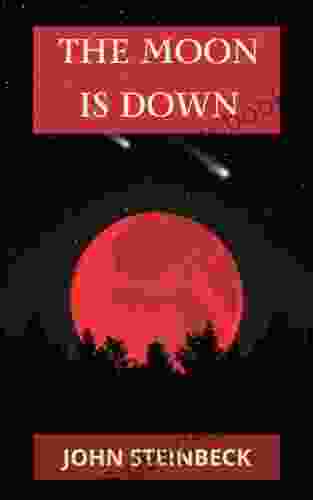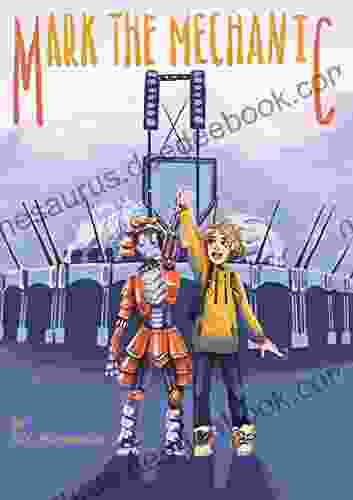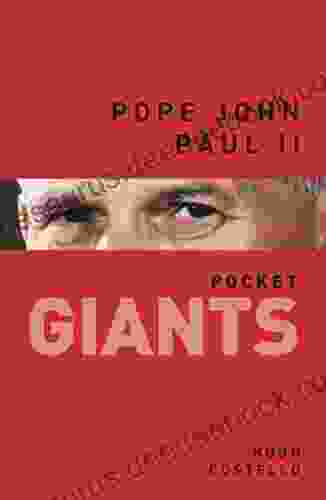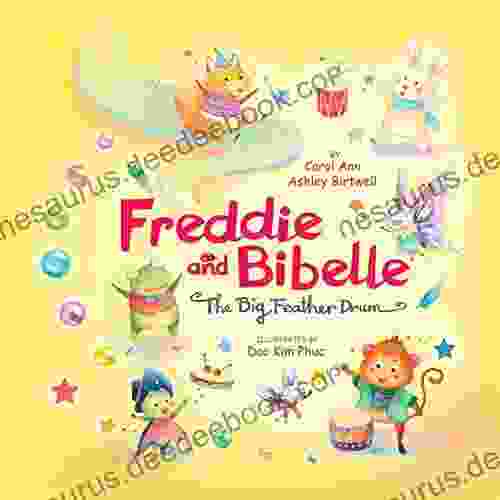Unveiling Apartheid Censorship: Its Impact on South African Culture, Literature, and Media

5 out of 5
| Language | : | English |
| File size | : | 3230 KB |
| Text-to-Speech | : | Enabled |
| Screen Reader | : | Supported |
| Enhanced typesetting | : | Enabled |
| Word Wise | : | Enabled |
| Print length | : | 432 pages |
| Lending | : | Enabled |
During the oppressive era of Apartheid in South Africa, censorship played a pervasive role in shaping the nation's cultural landscape. This article delves into the multifaceted effects of censorship on South African culture, literature, and media, exploring its suppression of creativity, its profound impact on cultural identity, and the enduring legacy it has left on the nation's memory.
Banned Literature: Silencing Voices of Dissent
Literature served as a powerful tool for expressing dissent against the Apartheid regime. However, the government wielded censorship as a weapon to stifle these critical voices. Novels, poems, and plays were banned for their portrayal of racial inequality, interracial relationships, and resistance to Apartheid.
Renowned authors such as Nadine Gordimer, Alan Paton, and Athol Fugard faced the wrath of censorship. Their works were prohibited from being published, distributed, or even possessed in South Africa. This suppression aimed to prevent the spread of ideas that challenged the legitimacy of Apartheid and its racist policies.
Film and Theater: Muzzling Critical Perspectives
The government also extended its censorship reach to the world of film and theater. Plays and films that explored themes of racial oppression, apartheid brutality, or interracial relationships were often banned. This suppression aimed to control the narratives presented to the public and shape the perception of the Apartheid regime.
Films like "The Gods Must Be Crazy" and the stage play "Sarafina!" faced censorship for their depiction of the harsh realities of Apartheid. The silencing of these works effectively prevented the public from engaging with alternative perspectives and challenging the government's propaganda.
Political Cartoonists: Targets of Repressive Measures
Political cartoonists played a crucial role in satirizing and criticizing the Apartheid regime. Through their sharp pen and incisive wit, they exposed the hypocrisy, brutality, and absurdity of Apartheid. However, their work often made them targets of repressive measures.
Cartoonists like Zapiro and Jonathan Shapiro were subjected to harassment, intimidation, and even imprisonment for their work. The government sought to silence these critical voices and prevent them from reaching the public.
Journalism Under Oppression: Controlling the Narrative
Journalism played a vital role in documenting the injustices and human rights violations of Apartheid. However, the government exerted strict control over the media to prevent the dissemination of information that contradicted the official narrative.
Newspapers and magazines faced censorship, banning, and suspension. Independent journalists were harassed, detained, and even killed for challenging the regime's version of events. The suppression of critical journalism effectively silenced dissenting voices and distorted the public's understanding of the true nature of Apartheid.
Fractured Education System: Shaping Minds in Apartheid's Mold
The Apartheid government also extended its control over education, using it as a tool to indoctrinate young minds into its ideology of racial segregation. Textbooks and curricula were censored to glorify the Apartheid regime and suppress any mention of its injustices.
Education under Apartheid was divided along racial lines, with inferior resources allocated to Black schools. This created a significant disparity in educational opportunities, leaving many Black students without access to quality education.
Suppression of Music: Silencing the Rhythm of Resistance
Music played a powerful role in fostering resistance and expressing the pain and suffering under Apartheid. However, the government sought to control and suppress this powerful form of expression.
Musicians like Miriam Makeba, Hugh Masekela, and Johnny Clegg faced censorship and banning for their songs that criticized Apartheid and promoted equality. Their music was banned from being played on the radio or performed in public, effectively silencing their voices and their message of resistance.
Psychological Impact: Trauma and Self-Censorship
Apartheid censorship had a profound psychological impact on South Africans, both as individuals and as a collective. The constant fear of surveillance and the suppression of critical voices created a climate of fear and self-censorship.
Many individuals internalized the government's propaganda and became hesitant to express their true opinions for fear of retribution. This suppression of speech and thought had a lasting impact on the nation's identity and its ability to engage in open and honest dialogue.
Resistance Through Arts: Creativity Under Oppression
Despite the oppressive conditions, South African artists and intellectuals found creative ways to resist censorship and express their dissent. They used symbolism, allegory, and satire to convey their messages and challenge the Apartheid regime.
Literature, theater, and music became powerful tools for resistance, providing a space for critical dialogue and promoting awareness about the injustices of Apartheid. Art became a beacon of hope and a symbol of the indomitable spirit of the South African people.
Memory and Trauma: The Legacy of Censorship
The legacy of Apartheid censorship continues to shape South African culture to this day. The suppression of voices, the trauma inflicted on individuals, and the fractured education system have left lasting scars on the nation's collective memory.
In recent years, there have been efforts to document the experiences of those who lived through Apartheid and to preserve the memory of its victims. Museums, memorials, and archives have been established to ensure that the horrors of Apartheid are never forgotten and that the lessons of the past are not lost.
: The Enduring Legacy of Censorship
Apartheid censorship was a systematic and pervasive attack on South African culture and identity. It sought to control the narrative, silence dissent, and shape the minds of citizens according to the ideology of racial segregation.
However, despite the oppressive measures, South African artists, intellectuals, and activists found ways to resist censorship and express their defiance. They used their creativity and indomitable spirit to challenge the regime and inspire the struggle for freedom.
The legacy of Apartheid censorship is a complex and enduring one. It is a reminder of the power of suppression and the resilience of the human spirit. It is a testament to the importance of freedom of expression and the dangers of silencing critical voices.
5 out of 5
| Language | : | English |
| File size | : | 3230 KB |
| Text-to-Speech | : | Enabled |
| Screen Reader | : | Supported |
| Enhanced typesetting | : | Enabled |
| Word Wise | : | Enabled |
| Print length | : | 432 pages |
| Lending | : | Enabled |
Do you want to contribute by writing guest posts on this blog?
Please contact us and send us a resume of previous articles that you have written.
 Book
Book Novel
Novel Page
Page Chapter
Chapter Text
Text Story
Story Genre
Genre Reader
Reader Paperback
Paperback Magazine
Magazine Sentence
Sentence Bibliography
Bibliography Preface
Preface Manuscript
Manuscript Codex
Codex Bestseller
Bestseller Library card
Library card Narrative
Narrative Memoir
Memoir Reference
Reference Encyclopedia
Encyclopedia Dictionary
Dictionary Thesaurus
Thesaurus Resolution
Resolution Librarian
Librarian Catalog
Catalog Borrowing
Borrowing Stacks
Stacks Scholarly
Scholarly Journals
Journals Rare Books
Rare Books Special Collections
Special Collections Interlibrary
Interlibrary Literacy
Literacy Thesis
Thesis Dissertation
Dissertation Awards
Awards Reading List
Reading List Book Club
Book Club Theory
Theory Nicola Carroll
Nicola Carroll John A Lynn
John A Lynn Farrah Alexander
Farrah Alexander Donna F Brown
Donna F Brown Megan Angelo
Megan Angelo Benjamin Zachariah
Benjamin Zachariah Sharon D Welch
Sharon D Welch Carole Hopson
Carole Hopson Erik Varden
Erik Varden Morgan B Holland
Morgan B Holland Michael Moynihan
Michael Moynihan Giuseppe Franco
Giuseppe Franco Alex Dancyg
Alex Dancyg Julie Thomas Beckett
Julie Thomas Beckett S V Michaelson
S V Michaelson Joe Newman
Joe Newman Sara Fields
Sara Fields Ann Jefferson
Ann Jefferson Mandy Webster
Mandy Webster B Alaziz
B Alaziz
Light bulbAdvertise smarter! Our strategic ad space ensures maximum exposure. Reserve your spot today!

 Israel BellUnveiling the Epic Historical Saga of The Border Rifles: A Journey into the...
Israel BellUnveiling the Epic Historical Saga of The Border Rifles: A Journey into the... Isaac BellFollow ·13.8k
Isaac BellFollow ·13.8k Robert FrostFollow ·13.9k
Robert FrostFollow ·13.9k Andy ColeFollow ·15.2k
Andy ColeFollow ·15.2k Griffin MitchellFollow ·14.9k
Griffin MitchellFollow ·14.9k Owen SimmonsFollow ·10.3k
Owen SimmonsFollow ·10.3k Maurice ParkerFollow ·9.2k
Maurice ParkerFollow ·9.2k Jack ButlerFollow ·9.1k
Jack ButlerFollow ·9.1k Harry CookFollow ·18.2k
Harry CookFollow ·18.2k

 Gary Reed
Gary ReedWeb to Web for Beginners: A Comprehensive Guide to...
In today's interconnected world, websites...

 Elliott Carter
Elliott CarterThe Moon Is Down: John Steinbeck's Poignant Portrait of...
In the annals of literature, John...

 Dalton Foster
Dalton FosterMark The Mechanic: The Incredible Story Of A Young...
In the vibrant realm of robotics, where...

 Fred Foster
Fred FosteriPhone 13 Pro Max User Guide: Everything You Need to Know
The iPhone 13 Pro Max...

 Rodney Parker
Rodney ParkerPope John Paul II: The Pocket Giant Who Inspired Millions
Pope John Paul II, or...
5 out of 5
| Language | : | English |
| File size | : | 3230 KB |
| Text-to-Speech | : | Enabled |
| Screen Reader | : | Supported |
| Enhanced typesetting | : | Enabled |
| Word Wise | : | Enabled |
| Print length | : | 432 pages |
| Lending | : | Enabled |












